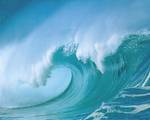
Well, last night I went to see Shark Water and not only was I truly pleased with the film, but it also peaked my interest in sharks. In this film there was a lot of information of hammerhead sharks and sharks in general; however I found that I wanted to learn a little bit more about specific shark species. For today I am going to write a little bit about the Basking Shark. First off when someone looks at the Basking shark they instantly think monster. As with all sharks this is a misconception. A lot of the fear of Basking sharks stems from their appearance as a wide opened mouth shark waiting to swallow humans whole. As well if you look back in the history of sea monsters many people considered the Basking shark not a shark but a sea monster. Both of these things have contributed to the Basking Sharks image but they are just not true. To help debunk the sterotype on the Basking shark it is first very important to note that they are not big toothed animals. These creatures are filter feeders, feeding on small plankton as well as fish eggs and larvae. This is the total opposite of what many people believe, as they believe that the Basking shark is a huge carnivore that feeds on huge mammals. This is impossible as they do not even have big teeth.
Some facts on Basking Sharks:
1) Second largest fish in the world (whael sharks are first)
2) Can grow up to a length of 10 meters.
3) Slow swimmers, using their entire bodies to move (3 mph)
4) Females reach sexual maturity at 4-5 meters and give birth to live young
5) Pelagic animals occuring in warm coastal and cool temperate waters
6) Often stray inshore and spend most of their time near the surface of the water
7) Migrate to deeper water in winter
8) Common along the coast of Nova Scotia and New Brunswick
Links:

1 comment:
You've written a nice opinion about the basking shark! Basking Sharks are big and completly harmless just as the Whale Shark, but don't you think that they could swallow a person with such a big mouth ;D
I've also written some articles about mysterious sea animals, so if you want to discover more of them: Mysterious deep sea animals
Post a Comment